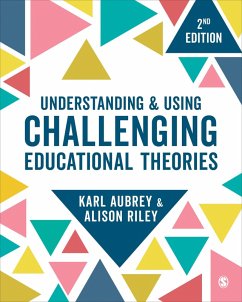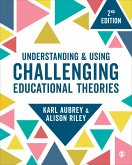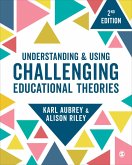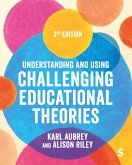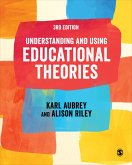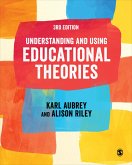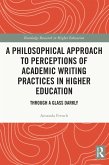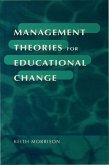37,95 €
37,95 €
inkl. MwSt.
Sofort per Download lieferbar

19 °P sammeln
37,95 €
Als Download kaufen

37,95 €
inkl. MwSt.
Sofort per Download lieferbar

19 °P sammeln
Jetzt verschenken
Alle Infos zum eBook verschenken
37,95 €
inkl. MwSt.
Sofort per Download lieferbar
Alle Infos zum eBook verschenken

19 °P sammeln
- Format: ePub
- Merkliste
- Auf die Merkliste
- Bewerten Bewerten
- Teilen
- Produkt teilen
- Produkterinnerung
- Produkterinnerung
- Weitere 8 Ausgaben:
- Gebundenes Buch
- Gebundenes Buch
- Broschiertes Buch
- Broschiertes Buch
- eBook, ePUB
- eBook, ePUB
- eBook, PDF
- eBook, PDF

Bitte loggen Sie sich zunächst in Ihr Kundenkonto ein oder registrieren Sie sich bei
bücher.de, um das eBook-Abo tolino select nutzen zu können.
Hier können Sie sich einloggen
Hier können Sie sich einloggen
Sie sind bereits eingeloggt. Klicken Sie auf 2. tolino select Abo, um fortzufahren.

Bitte loggen Sie sich zunächst in Ihr Kundenkonto ein oder registrieren Sie sich bei bücher.de, um das eBook-Abo tolino select nutzen zu können.
Introducing you to 18 key educational thinkers who have offered challenging perspectives on education, this new edition comes with:
- 3 new chapters on Ivan Illich, Loris Malaguzzi and Michael Apple
- A glossary of key words related to each theorist's work
- A context-setting overview of key themes
- Practical examples that shows how theories can be applied to your practice
Use this book with it's companion title Aubrey & Riley, Understanding and Using Educational Theories 2e (9781526436610)
- Geräte: eReader
- mit Kopierschutz
- eBook Hilfe
- Größe: 0.74MB
Andere Kunden interessierten sich auch für
![Understanding and Using Challenging Educational Theories (eBook, ePUB) Understanding and Using Challenging Educational Theories (eBook, ePUB)]() Karl AubreyUnderstanding and Using Challenging Educational Theories (eBook, ePUB)37,95 €
Karl AubreyUnderstanding and Using Challenging Educational Theories (eBook, ePUB)37,95 €![Understanding and Using Challenging Educational Theories (eBook, PDF) Understanding and Using Challenging Educational Theories (eBook, PDF)]() Karl AubreyUnderstanding and Using Challenging Educational Theories (eBook, PDF)37,95 €
Karl AubreyUnderstanding and Using Challenging Educational Theories (eBook, PDF)37,95 €![Understanding and Using Challenging Educational Theories (eBook, ePUB) Understanding and Using Challenging Educational Theories (eBook, ePUB)]() Karl AubreyUnderstanding and Using Challenging Educational Theories (eBook, ePUB)29,95 €
Karl AubreyUnderstanding and Using Challenging Educational Theories (eBook, ePUB)29,95 €![Understanding and Using Educational Theories (eBook, ePUB) Understanding and Using Educational Theories (eBook, ePUB)]() Karl AubreyUnderstanding and Using Educational Theories (eBook, ePUB)29,95 €
Karl AubreyUnderstanding and Using Educational Theories (eBook, ePUB)29,95 €![Understanding and Using Educational Theories (eBook, ePUB) Understanding and Using Educational Theories (eBook, ePUB)]() Karl AubreyUnderstanding and Using Educational Theories (eBook, ePUB)29,95 €
Karl AubreyUnderstanding and Using Educational Theories (eBook, ePUB)29,95 €![A Philosophical Approach to Perceptions of Academic Writing Practices in Higher Education (eBook, ePUB) A Philosophical Approach to Perceptions of Academic Writing Practices in Higher Education (eBook, ePUB)]() Amanda FrenchA Philosophical Approach to Perceptions of Academic Writing Practices in Higher Education (eBook, ePUB)40,95 €
Amanda FrenchA Philosophical Approach to Perceptions of Academic Writing Practices in Higher Education (eBook, ePUB)40,95 €![Management Theories for Educational Change (eBook, ePUB) Management Theories for Educational Change (eBook, ePUB)]() Keith MorrisonManagement Theories for Educational Change (eBook, ePUB)60,95 €
Keith MorrisonManagement Theories for Educational Change (eBook, ePUB)60,95 €-
-
-
Introducing you to 18 key educational thinkers who have offered challenging perspectives on education, this new edition comes with:
- 3 new chapters on Ivan Illich, Loris Malaguzzi and Michael Apple
- A glossary of key words related to each theorist's work
- A context-setting overview of key themes
- Practical examples that shows how theories can be applied to your practice
Use this book with it's companion title Aubrey & Riley, Understanding and Using Educational Theories 2e (9781526436610)
- 3 new chapters on Ivan Illich, Loris Malaguzzi and Michael Apple
- A glossary of key words related to each theorist's work
- A context-setting overview of key themes
- Practical examples that shows how theories can be applied to your practice
Use this book with it's companion title Aubrey & Riley, Understanding and Using Educational Theories 2e (9781526436610)
Dieser Download kann aus rechtlichen Gründen nur mit Rechnungsadresse in A, D ausgeliefert werden.
Produktdetails
- Produktdetails
- Verlag: SAGE Publications
- Seitenzahl: 352
- Erscheinungstermin: 14. Oktober 2020
- Englisch
- ISBN-13: 9781529737189
- Artikelnr.: 59384930
- Verlag: SAGE Publications
- Seitenzahl: 352
- Erscheinungstermin: 14. Oktober 2020
- Englisch
- ISBN-13: 9781529737189
- Artikelnr.: 59384930
- Herstellerkennzeichnung Die Herstellerinformationen sind derzeit nicht verfügbar.
Karl Aubrey is a Visiting Tutor on the Professional Studies in Education programmes at Bishop Grosseteste University. Prior to this Karl was the Programme Leader for a range of initial teacher education and professional development programmes at a large city further education college. Between 2003 and 2005 he was seconded to the DfES Standards Unit as a learning and teaching practitioner in the East Midlands. Karl has contributed to the Oxford Dictionary of Education. His doctoral thesis explored the reforms in further education teacher education from 2000 to 2010, from the viewpoint of teacher educators. Karl's research interests include inclusion, education policy, pedagogy and work-based learning.
Chapter 1: Abraham Maslow: The father of American humanism
Chapter 2: Carl Rogers: Learner-centred teaching and the fully functioning person
Chapter 3: A.S. Neill: Freedom to learn
Chapter 4: John Goodlad: The renewal of teaching and learning, schools and teacher education
Chapter 5: Basil Bernstein: Language codes, social class, pedagogy and the curriculum
Chapter 6: Ivan Illich: Deschooling society: challenging the concept of school
Chapter 7: Pierre Bourdieu: Theory of society
Chapter 8: Michel Foucault: Power, surveillance, discipline and control in education
Chapter 9: Loris Malaguzzi: The Reggio Emilia experience
Chapter 10: Nel Noddings: Caring in education
Chapter 11: Lawrence Stenhouse: Linking the curriculum with theory, research and practice
Chapter 12: Michael Apple: Ideology, knowledge, power, and the curriculum
Chapter 13: Henry Giroux: Critical pedagogy
Chapter 14: Howard Gardner: Multiple intelligences and education
Chapter 15: John Holt: Unschooling or home schooling
Chapter 16: bell hooks: Education as the practice of freedom
Chapter 17: Jack Mezirow: Transformative learning
Chapter 18: Linda Darling-Hammond: Equity in education - policy, teachers and teaching
Chapter 2: Carl Rogers: Learner-centred teaching and the fully functioning person
Chapter 3: A.S. Neill: Freedom to learn
Chapter 4: John Goodlad: The renewal of teaching and learning, schools and teacher education
Chapter 5: Basil Bernstein: Language codes, social class, pedagogy and the curriculum
Chapter 6: Ivan Illich: Deschooling society: challenging the concept of school
Chapter 7: Pierre Bourdieu: Theory of society
Chapter 8: Michel Foucault: Power, surveillance, discipline and control in education
Chapter 9: Loris Malaguzzi: The Reggio Emilia experience
Chapter 10: Nel Noddings: Caring in education
Chapter 11: Lawrence Stenhouse: Linking the curriculum with theory, research and practice
Chapter 12: Michael Apple: Ideology, knowledge, power, and the curriculum
Chapter 13: Henry Giroux: Critical pedagogy
Chapter 14: Howard Gardner: Multiple intelligences and education
Chapter 15: John Holt: Unschooling or home schooling
Chapter 16: bell hooks: Education as the practice of freedom
Chapter 17: Jack Mezirow: Transformative learning
Chapter 18: Linda Darling-Hammond: Equity in education - policy, teachers and teaching
Introduction
Ch1 Abraham Maslow: The third force in psychology
Ch2 Carl Rogers: Learner-centred teaching and the fully functioning person
Ch3 A.S. Neill: Freedom to learn
Ch4 John Goodlad: The renewal of teaching and learning, schools and teacher
education
Ch5 Basil Bernstein: Language codes, social class, pedagogy and the
curriculum
Ch6 Ivan Illich: Deschooling society: challenging the concept of school
Ch7 Pierre Bourdieu: Theory of society
Ch8 Michel Foucault: Power, surveillance, discipline and control in
education
Ch9 Loris Malaguzzi: The Reggio Emilia experience
Ch10 Nel Noddings: Caring in education
Ch11 Lawrence Stenhouse: Linking the curriculum with theory, research and
practice
Ch12 Michael Apple: Ideology, knowledge, power, and the curriculum
Ch13 Henry Giroux: Critical pedagogy
Ch14 Howard Gardner: Multiple intelligences and education
Ch15 John Holt: Unschooling or home schooling
Ch16 bell hooks: Education as the practice of freedom
Ch17 Jack Mezirow: Transformative learning
Ch18 Linda Darling-Hammond: Equity in education: policy, teachers and
teaching
Ch19 Diane Ravitch: From Champion To Critic Of The American Education
System
Ch20 Gloria Ladson-Billings: Culturally Relevant Pedagogy
Ch1 Abraham Maslow: The third force in psychology
Ch2 Carl Rogers: Learner-centred teaching and the fully functioning person
Ch3 A.S. Neill: Freedom to learn
Ch4 John Goodlad: The renewal of teaching and learning, schools and teacher
education
Ch5 Basil Bernstein: Language codes, social class, pedagogy and the
curriculum
Ch6 Ivan Illich: Deschooling society: challenging the concept of school
Ch7 Pierre Bourdieu: Theory of society
Ch8 Michel Foucault: Power, surveillance, discipline and control in
education
Ch9 Loris Malaguzzi: The Reggio Emilia experience
Ch10 Nel Noddings: Caring in education
Ch11 Lawrence Stenhouse: Linking the curriculum with theory, research and
practice
Ch12 Michael Apple: Ideology, knowledge, power, and the curriculum
Ch13 Henry Giroux: Critical pedagogy
Ch14 Howard Gardner: Multiple intelligences and education
Ch15 John Holt: Unschooling or home schooling
Ch16 bell hooks: Education as the practice of freedom
Ch17 Jack Mezirow: Transformative learning
Ch18 Linda Darling-Hammond: Equity in education: policy, teachers and
teaching
Ch19 Diane Ravitch: From Champion To Critic Of The American Education
System
Ch20 Gloria Ladson-Billings: Culturally Relevant Pedagogy
Chapter 1: Abraham Maslow: The father of American humanism
Chapter 2: Carl Rogers: Learner-centred teaching and the fully functioning person
Chapter 3: A.S. Neill: Freedom to learn
Chapter 4: John Goodlad: The renewal of teaching and learning, schools and teacher education
Chapter 5: Basil Bernstein: Language codes, social class, pedagogy and the curriculum
Chapter 6: Ivan Illich: Deschooling society: challenging the concept of school
Chapter 7: Pierre Bourdieu: Theory of society
Chapter 8: Michel Foucault: Power, surveillance, discipline and control in education
Chapter 9: Loris Malaguzzi: The Reggio Emilia experience
Chapter 10: Nel Noddings: Caring in education
Chapter 11: Lawrence Stenhouse: Linking the curriculum with theory, research and practice
Chapter 12: Michael Apple: Ideology, knowledge, power, and the curriculum
Chapter 13: Henry Giroux: Critical pedagogy
Chapter 14: Howard Gardner: Multiple intelligences and education
Chapter 15: John Holt: Unschooling or home schooling
Chapter 16: bell hooks: Education as the practice of freedom
Chapter 17: Jack Mezirow: Transformative learning
Chapter 18: Linda Darling-Hammond: Equity in education - policy, teachers and teaching
Chapter 2: Carl Rogers: Learner-centred teaching and the fully functioning person
Chapter 3: A.S. Neill: Freedom to learn
Chapter 4: John Goodlad: The renewal of teaching and learning, schools and teacher education
Chapter 5: Basil Bernstein: Language codes, social class, pedagogy and the curriculum
Chapter 6: Ivan Illich: Deschooling society: challenging the concept of school
Chapter 7: Pierre Bourdieu: Theory of society
Chapter 8: Michel Foucault: Power, surveillance, discipline and control in education
Chapter 9: Loris Malaguzzi: The Reggio Emilia experience
Chapter 10: Nel Noddings: Caring in education
Chapter 11: Lawrence Stenhouse: Linking the curriculum with theory, research and practice
Chapter 12: Michael Apple: Ideology, knowledge, power, and the curriculum
Chapter 13: Henry Giroux: Critical pedagogy
Chapter 14: Howard Gardner: Multiple intelligences and education
Chapter 15: John Holt: Unschooling or home schooling
Chapter 16: bell hooks: Education as the practice of freedom
Chapter 17: Jack Mezirow: Transformative learning
Chapter 18: Linda Darling-Hammond: Equity in education - policy, teachers and teaching
Introduction
Ch1 Abraham Maslow: The third force in psychology
Ch2 Carl Rogers: Learner-centred teaching and the fully functioning person
Ch3 A.S. Neill: Freedom to learn
Ch4 John Goodlad: The renewal of teaching and learning, schools and teacher
education
Ch5 Basil Bernstein: Language codes, social class, pedagogy and the
curriculum
Ch6 Ivan Illich: Deschooling society: challenging the concept of school
Ch7 Pierre Bourdieu: Theory of society
Ch8 Michel Foucault: Power, surveillance, discipline and control in
education
Ch9 Loris Malaguzzi: The Reggio Emilia experience
Ch10 Nel Noddings: Caring in education
Ch11 Lawrence Stenhouse: Linking the curriculum with theory, research and
practice
Ch12 Michael Apple: Ideology, knowledge, power, and the curriculum
Ch13 Henry Giroux: Critical pedagogy
Ch14 Howard Gardner: Multiple intelligences and education
Ch15 John Holt: Unschooling or home schooling
Ch16 bell hooks: Education as the practice of freedom
Ch17 Jack Mezirow: Transformative learning
Ch18 Linda Darling-Hammond: Equity in education: policy, teachers and
teaching
Ch19 Diane Ravitch: From Champion To Critic Of The American Education
System
Ch20 Gloria Ladson-Billings: Culturally Relevant Pedagogy
Ch1 Abraham Maslow: The third force in psychology
Ch2 Carl Rogers: Learner-centred teaching and the fully functioning person
Ch3 A.S. Neill: Freedom to learn
Ch4 John Goodlad: The renewal of teaching and learning, schools and teacher
education
Ch5 Basil Bernstein: Language codes, social class, pedagogy and the
curriculum
Ch6 Ivan Illich: Deschooling society: challenging the concept of school
Ch7 Pierre Bourdieu: Theory of society
Ch8 Michel Foucault: Power, surveillance, discipline and control in
education
Ch9 Loris Malaguzzi: The Reggio Emilia experience
Ch10 Nel Noddings: Caring in education
Ch11 Lawrence Stenhouse: Linking the curriculum with theory, research and
practice
Ch12 Michael Apple: Ideology, knowledge, power, and the curriculum
Ch13 Henry Giroux: Critical pedagogy
Ch14 Howard Gardner: Multiple intelligences and education
Ch15 John Holt: Unschooling or home schooling
Ch16 bell hooks: Education as the practice of freedom
Ch17 Jack Mezirow: Transformative learning
Ch18 Linda Darling-Hammond: Equity in education: policy, teachers and
teaching
Ch19 Diane Ravitch: From Champion To Critic Of The American Education
System
Ch20 Gloria Ladson-Billings: Culturally Relevant Pedagogy
